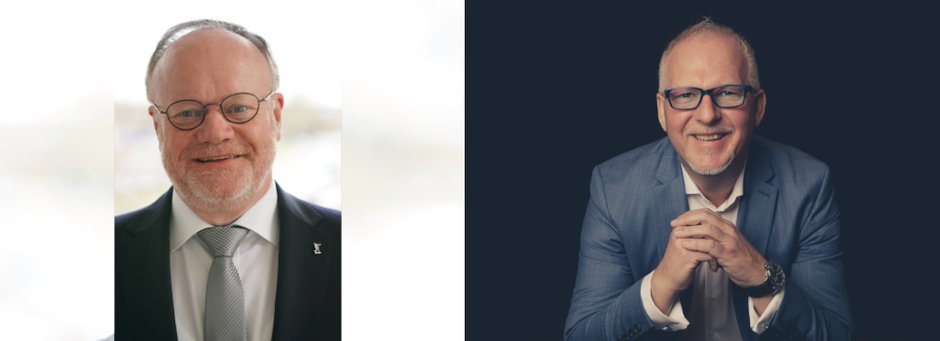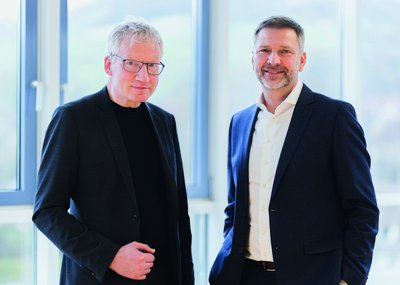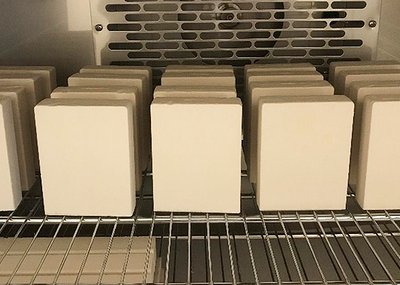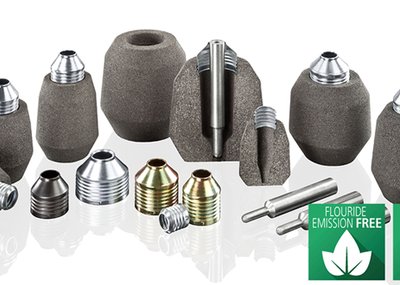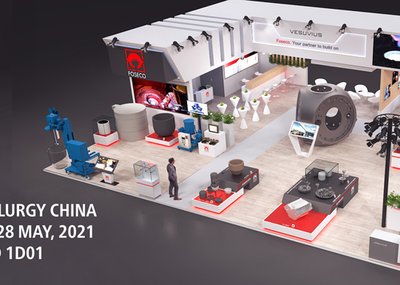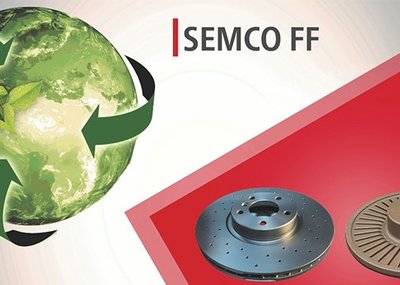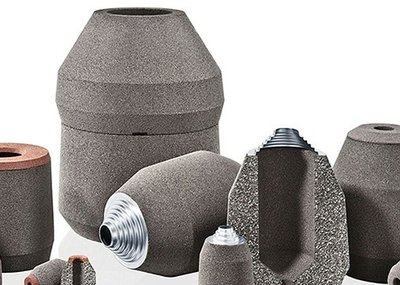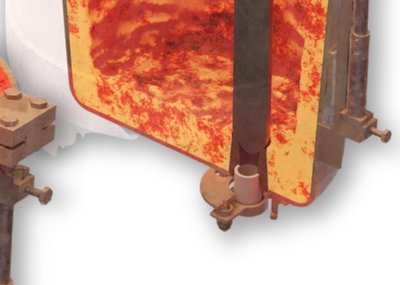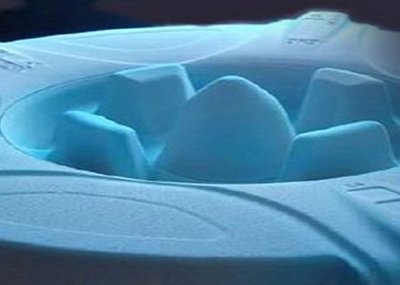On 30 June 2021, Heinz Nelissen will retire after 31 years of successful service to the Foseco and Vesuvius group of companies.
Heinz Nelissen was instrumental in the development and expansion of Foseco and Vesuvius, first as product manager for non-ferrous products, then for Foseco as sales manager of the foundry non-ferrous business unit. After two years of business development in Eastern Europe and the founding of Foseco Poland, he returned to Borken, where he took over the Ferrous Division as Business Unit Manager from 2002. In 2003 he was appointed Managing Director of Foseco GmbH. As Director Europe North for the Foundry Division, Heinz Nelissen was then mainly responsible for the management of the Foundry Division from 2005. He was instrumental in the successful development and production of the riser and filter range and was responsible for the integration of the coating business.
In agreement with the Vesuvius Group, Heinz Nelissen resigned from his position as Managing Director of Vesuvius GmbH at the beginning of this year, a position he held for 18 years. He will continue to work for the company as Area Director Northern Europe until 30 June 2021, after which he looks forward to retiring.
Quote Heinz Nelissen: "In my 31 years in the foundry industry, I have met many great people, faced many challenges and implemented many ideas together with colleagues and customers. Important management tasks, such as the development of the European non-ferrous organisation and the high investments in the further automation of the Borken site, were successfully implemented. From a marketing perspective, it was a highlight for me to be appointed President of GIFA 2019. This was a recognition of the many years of efforts by Foseco and the Foseco employees to innovate, and at the same time an honour for me personally."
His successor as managing director of Vesuvius GmbH for the foundry division is Rafael Carbonell. Rafael Carbonell holds a master’s degree in Mathematics and Theoretical Physics from Cambridge University and an MBA from London Business School. After graduating, he spent 10 years in various management positions in the aluminum industry. For more than two years, he has been responsible for the strategic growth of the European foundry business at the Vesuvius Group as European Vice President EMEA Foundry. He will continue to perform this task in addition to his duties as Managing Director.
Close contact and partnership with customers remain Foseco's most important concern. For this reason, Hannes Erger, Business Unit Manager for the iron and steel foundry business, has been appointed to the management team in Borken. Hannes Erger will remain the contact person for all matters concerning customers and sales and will support the management in sales decisions. He will also represent the iron and steel foundries business unit in public relations and association work.
In Hannes Erger, Foseco has found a committed and competent successor for the management. Hannes Erger has been with Foseco for over 21 years and can look back on many years of experience in various areas of activity in the foundry industry. He is therefore very familiar with the special requirements that customers place on foundry solutions. Hannes Erger has been with the company since 1999 and was appointed Sales Manager for iron and steel foundries in 2003. Since 2014, he has had overall responsibility for the iron and steel foundries business unit as Business Unit Manager. Customer concerns and satisfaction are particularly important to Hannes Erger. "I would like to continue the partnership-based and successful cooperation with our customers that we have experienced so far. I am convinced that the German foundry industry and thus also Foseco will still have to deal with the consequences of the Corona pandemic in the medium term. We assume that the cast tonnage in Germany will level off again at a higher level in about two years.
Together with our customers, we will continue to apply our proven Foseco Business Model. In cooperation between the management staff in the foundries and our experts, topics such as changes in processes, minimisation of the use of resources, innovative Foseco product application and the associated increase in productivity as well as quality improvements are of high importance. These need to be further identified and implemented. Our contribution beyond the next few months is to make foundry products "Made in Germany" even more efficient and attractive. In this way we can help to secure Germany as a foundry location in the long term.
"I am looking forward to the new task, which will certainly bring exciting discussions and innovations," says Hannes Erger on his move to the management.
In recent years, Vesuvius has invested heavily in the development of new product ideas for its foundry customers. Hannes Erger sees the successful marketing of these products as a focal point and opportunities to further expand the business.
There will be no changes in the non-ferrous division: Jens Ohm will remain responsible for this sector in his role as Sales Manager Northern Europe.
"The German foundry industry will emerge stronger from the pandemic!"
PREVIEW:
With Heinz Nelissen, President of GIFA 2019 and until now Managing Director at FOSECO/Vesuvius, one of the best-known movers and shakers in the foundry industry is retiring. With Hannes Erger, the group is filling the succession in the management from its own ranks. In this GIESSEREI interview, the two experts explain what challenges Foseco will face in the future and where Germany's foundry industry currently stands.
Mr. Nelissen, a classic question to start with: What will you do in the future?
Nelissen: I have arranged with my wife that we will go on certain trips together. Of course, I have been a frequent traveller in the past years - on business, of course. Family holidays have long taken a back seat to that. We will change that, for example to catch up with New York, where we actually already wanted to go in 2020. South Africa is also one of our goals.
In addition, I will do more endurance sports and would like to hike regularly around Unterbacher See in Düsseldorf. But still, I won't leave the industry completely in my mind. I will certainly continue to follow its magazine, GIESSEREI. And I also plan to attend the next Foundry Day.
You have been working in the Foseco Group since the end of the 1980s. What has changed during this time?
You could write a book about that. Yesterday and today are worlds apart. First, German unification brought with it the large newly accessible foundry market in the five East German states. By visiting the big foundries, making contacts and presenting the products, this was a very big change that continues to this day, because a large part of the German foundry industry is in the East. Then in the 1990s there was too much foundry capacity in Germany, which led to a strong consolidation. Nevertheless, casting tonnage in Germany remained stable, but spread over fewer locations. However, other large European markets such as the UK and France lost large amounts of casting capacity to Eastern Europe and Turkey. Then there has been heavy investment in automation - a trend that continues today. If you look at today's moulding lines, they have become much faster compared to the past. Today, significantly more castings are produced per employee hour than in the past. At the same time, we see a growth in non-ferrous foundries and a shift towards processes that can be automated. The challenges of globalisation created new market access, but also new competitors, for foundries as well as foundry suppliers. Foundries today are much cleaner, in terms of emissions and overall appearance, and some can be considered high-tech operations.
Where does the German foundry industry stand today?
Compared to the rest of Europe, Germany has been and remains the number one country for cast tonnage, albeit now with completely different segments, alloys and processes. But Germany is still in a very good position, also because of its philosophy of investing and modernising processes. That is not necessarily the case in other countries. Now, the use of energy is being optimised in this country, for example in furnaces. Because the non-ferrous sector is growing very strongly, we also see large investments in the die-casting sector. The willingness to spend money on modernisation is a strength that Germany has and that also ensures that we remain a leader.
Mr. Nelissen, in 2019 you were appointed President of GIFA, which was very successful that year. What do you think will become of the GIFA trade fair format under the impression of 2020 and increasing digitalisation?
Trade fairs are currently struggling to show how important they are for the trade. GIFA 2019 was different, as it was very successful and took place at just the right moment. We already saw a downturn in car manufacturing at the end of 2019, then the Corona crisis came just a few months later. Since then, digitalisation has been advancing in leaps and bounds, even our interview would probably have been conducted in person rather than via Microsoft Teams if it hadn't been for Corona. In the meantime, we at Foseco also conduct a lot of customer meetings online. This digitalisation push will continue and lead to further process automation in the foundries and to more advanced robot technology. This will certainly be a focus at the next GIFA in 2023. The next GIFA will probably also be able to take place as a face-to-face event again. This is necessary to stimulate the dialogue of the international foundry world. By 2023 the foundry market will have stabilised again and 2023 could therefore, from today's point of view, be exactly the right date for the next successful GIFA.
Mr. Nelissen, you resigned from the management of Foseco’ s parent company Vesuvius at the beginning of the year. You will relinquish your post as Area Director Northern Europe in the summer. Hannes Erger will become a member of the management of Vesuvius in Borken. What would you like to pass on to him?
Hannes Erger is already very experienced in his previous job, he knows the customer structure and the core contact persons. He is already very well positioned. Otherwise: Focus on customers and employees. This is the only way we can learn about challenges in the market at an early stage, develop targeted solutions and then establish them with the customers through our employees. This is the only way to create value for the customer and to make the business sustainable. There will be many challenges, but if you ever must weigh up between an internal meeting and a customer meeting, choose: Customer first! That has always been my priority.
Mr. Erger, you have been working at Foseco for 21 years, currently as Business Unit Manager Iron and Steel Foundries. With what feelings are you taking over from Mr. Nelissen?
Erger: I have been working with Mr. Nelissen for more than 20 years and I am full of enthusiasm to take over from him, but at the same time I know that this will be a great challenge for me, as Heinz Nelissen has made a name for himself in the foundry world as a very competent and respected partner for customers, employees and foundry experts over decades. However, I am happy to take on this challenge and am confident that I will be able to continue the cooperative relationship with the foundrymen that Mr. Nelissen has shaped.
What would you like to achieve for your company as Mr. Nelissen’ s successor at Foseco?
Foseco stands for Foundry Service Company. The basic idea is to be at the service of the customer and together with the customer we will continue to apply our proven Foseco business model. In the cooperation between the management personnel in the foundries and our sales engineers, topics such as changes in processes or minimising the use of resources are important aspects. With innovative Foseco product applications, we want to continue to achieve productivity increases and quality improvements. We also have many new product ideas "in the pipeline", developed in our development centre in Enschede according to the requirements of our global foundry customers. We will present these to our customers in a timely manner. Foseco wants to contribute to making foundry products "Made in Germany" even more efficient and attractive. In this way we can help to secure Germany as an important foundry location in the long term.
Mr. Nelissen, Mr. Erger. The foundry industry is affected by the pandemic. The trend towards electromobility continues. In which direction is the industry developing?
Nelissen: Casting tonnage in Germany fell by around 35% in 2020 due to the pandemic-related reduction in the market. Incidentally, the magnitude is reminiscent of the effects of the 2009 financial crisis. The global trends remain essentially unaffected by the pandemic. Today, we assume that cast tonnage will stabilise again over the course of two years and return to the level of 2019. E-mobility is, of course, a trend that is strongly influencing the market, especially for passenger cars. If hybrid vehicles are produced, the cast share is stable. With all-electric vehicles, more non-ferrous metal castings are used, but important iron castings, especially in the engine and drive area, are eliminated. The corresponding foundries must look for replacements in time.
Erger: This is a difficult question to answer because the world continues to be during a global health crisis and a world economic crisis whose effects are still uncertain. I think, like Mr. Nelissen, that the German foundry industry and thus also Foseco will have to deal with the consequences of the Corona pandemic in the medium term. But in the end, I am convinced that we will emerge stronger from the pandemic. It is important to make the right business decisions now to position ourselves for the future. Of course, this also includes the orientation of the companies, especially the automotive foundries, to face the changing demands of the electromobility market and to break new ground. Brake discs and various chassis parts will probably remain, but engine blocks will certainly disappear. However, it will certainly be several years before electromobility can establish itself. For that, fundamental changes in the infrastructure are still necessary, which first have to be created.
And what challenges do you both see for Foseco?
Nelissen: Foseco is part of the Vesuvius Group, which has come through the crisis in a stable manner so far. In general, however, Foseco, the foundry business of Vesuvius, is globally positioned. We can therefore compensate for geographical shifts in demand. Now we see a lot of demand in Eastern Europe and Mexico. Market proximity is always in demand. That's why we always must have local forces on site, because we can't necessarily serve the Chinese market with product managers from Germany or England, for example. We must support the growth of the non-ferrous foundries by building up appropriate resources. We are continuing to strengthen this business, but we already have a very strong presence there.
Erger: Foseco’ s strength is its market presence and proximity to our foundry customers. It is important that we face the changing market requirements and globalisation together with our customers and develop a unique selling proposition with innovative and individual casting applications in the different segments of the foundry industry.
In which direction are you developing your products for Germany in particular?
Erger: We are facing all the challenges that foundries must master. These are, for example, the many environmental regulations. With our products we are therefore trying to contribute to the reduction of CO2 emissions. The environment and efficiency are key issues for the future that we must continue to address.
The German foundry industry will emerge stronger from the crisis, you say Mr. Erger. Is the reason for your optimism that German foundries are more solidly positioned than other countries by investing in modernisation and sustainability?
Erger: Yes, most foundries have earned money in the past, which they are now investing in modernisation to become more efficient. This keeps German foundries at the cutting edge of technology. Sustainability will certainly also be a crucial issue. We have many enquiries from foundries about how our products can contribute to reducing CO2 emissions. Overall, we have been focusing on sustainability for a long time. At the last GIFA, it was our main topic.
Nelissen: Sustainability is becoming more and more important. Customers from the Scandinavian region also already attach importance to a commitment to sustainability. This trend is set to increase.
The interview with Heinz Nelissen and Hannes Erger was conducted by Robert Piterek and Martin Vogt – editorial team of the GIESSEREI magazine, Germany. GIESSEREI is the magazine of the German foundry association BDG.

